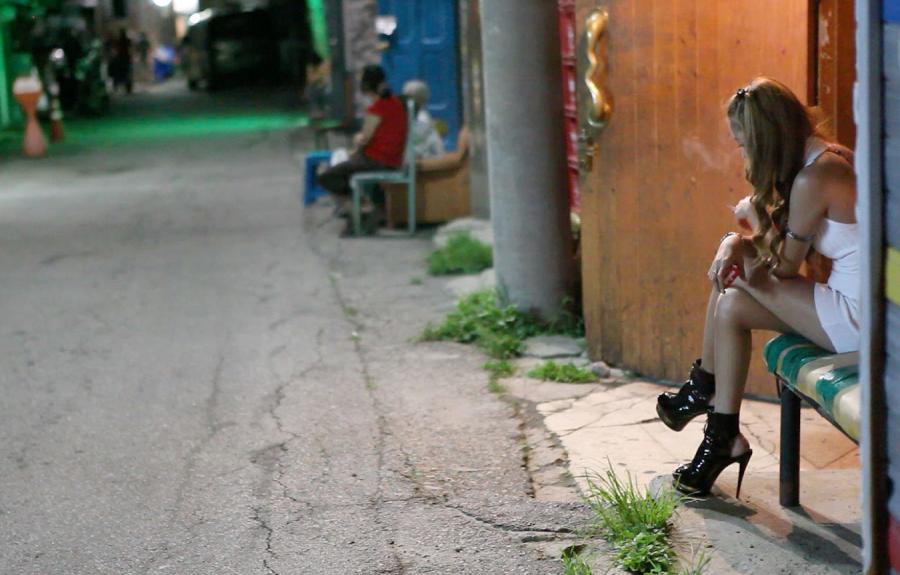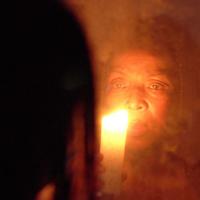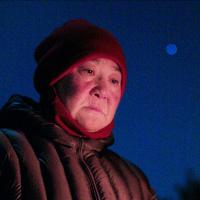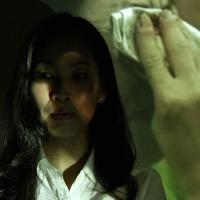Film series: Power of Seeing 보는 이의 권력

A Film Series on the Issue of U.S. Camp Town Military Prostitution in South Korea
On June 25th, 2014, feminist and human rights groups and 120 military prostitution survivors, filed a lawsuit against the Korean government. On February 8th, 2018, the Seoul High Court acknowledged that the Korean government, with alliance with the U.S. government, had justified and promoted the prostitution of military “comfort women” in U.S. camp towns since the Korean War (1950-1953). The court also acknowledged that the state unlawfully detained the women in the treatment center for stopping the spread of sexually transmitted diseases (STD) and indoctrinated them into believing that their “sacrifice” for the country was a patriotic act in the 1970s. While it was a notable accomplishment, the court only ruled around $7,000 as a compensation for those who were detained in the treatment center and $ 3,000 for those who were not.
The court decision was also long overdue: it was made 23 years after Kim Hak-sun, one of the former comfort women forcefully recruited by the Imperial Japanese Army during World War II, first came forward on the TV screen and recounted her harrowing stories. The domestic comfort women issue aided and abetted by the South Korean government has seldom received necessary media attention. Nor has the Korean public raised enough awareness about the continued violence against Korean women from the time of Japanese colonial control and U.S. military occupation through its prostitution system.
This film series brings to the screen and to wider public attention the issue of the military prostitution system promoted bilaterally by the South Korean and U.S. governments. For the last couple of decades, there have been a growing number of attempts to publicly address this issue through feminist activism and scholarship, film making, and video art. Most of the films and video works were made with low budget, limited screening venues, and insufficient public recognition. Despite the constraints, however, the films and video works have shown a rich diversity in aesthetic formats, plots, filming techniques, and political messages.
Often becoming a point of entry to the U.S. camp town issue for the audience, these films work as an informative device to critique as well as supplement the existing South Korean national histories. Their filmic experimentations, moreover, by belying the stock images of the issue, push the notion of the “acceptable” representation to the limit. The films’ often unsympathetic, if not hostile, reception manifests the inextricable link between the history, media representation, and the audience. By contesting the existing historical narratives and being contested for the ways they convey the history, these films seek to assert that as much as such media productions are at stake, their public reception holds power over their standing in the modern Korean historiography. There lies the power of seeing.
While sharing their criticism of Korean patriarchal nationalism and U.S. neocolonial militarism, the film directors and video artists’ ways of engaging with the issue are never uniform.
Copenhagen-based multimedia artist Jane Jin Kaisen, born on Jeju Island and adopted to Denmark when young, is reflexive of her diasporic identity in her artistic engagement with the modern Korean history. Her 2010 video work The Woman, The Orphan, and The Tiger weaves together the comfort women issues during the Japanese colonial period and the US military occupation. Korean film directors, Dong-ryung Kim and Kyung-tae Park, have made a number of films on the U.S. camp town military prostitution system with the survivors. Their 2012 award-winning film Tour of Duty centers around the life stories of the three survivors of the camp town. The Pregnant Tree and the Goblin (2022) is their latest collaborative work where Park In-sun, who is also shown in Tour of Duty, is featured as a main character and partially in control of narrative-building. After the viewing of The Pregnant Tree and the Goblin, the film makers and Shinjae Kim, a film critic and curator, will join via Zoom to discuss about their film production, engagement with their filmic subjects, and the issue of representation. Last but not least, Ko-woon Lee’s Host Nation (2016) makes an exposé that in today’s camp towns Korean women have been largely replaced by women from Philippines through a legalized system of sex trafficking.
Power of Seeing 보는 이의 권력 is curated by Soyi Kim, the inaugural LB Korean Studies Research Scholar for the East Asia Program at the Mario Einaudi Center for International Studies
Sponsored by the East Asia Program at the Mario Einaudi Center for International Studies, the departments of History of Art and Visual Culture, Government, History, and Asian Studies at Cornell, the Feminist, Gender & Sexuality Studies program, the Reppy Institute for Peace and Conflict Studies, and the Society for the Humanities.
Featuring:
Tour of Duty
Wednesday, March 15, 7:00 pm
Directed by Dong-ryung Kim & Kyung-tae Park, 2012
The Pregnant Tree and the Goblin
Wednesday, March 22, 7:00 pm
Directed by Dong-ryung Kim and Kyung-tae Park 2019
Followed by Zoom Q&A with directors Dong-ryung Kim, Kyung-tae Park, and film curator Shinjae Kim
The Woman, The Orphan, and The Tiger
Wednesday, April 12, 7:00 pm
Directed by Jane Jin Kaisen and Guston Sondin-Kung, 2010
Host Nation
Wednesday, April 19, 7:00 pm
Directed by Ko-woon Lee, 2016
All screenings are free and open to the public. Free tickets are available at cornellcinema.eventive.org.




